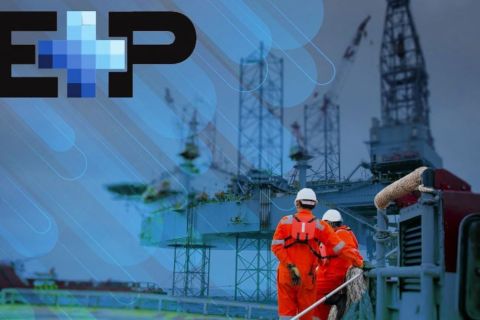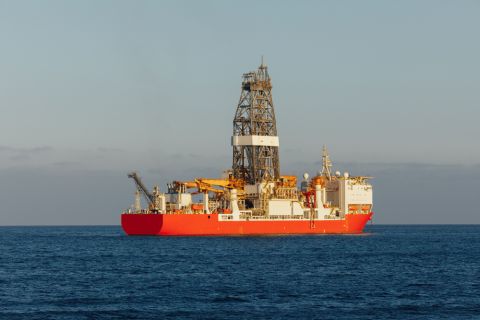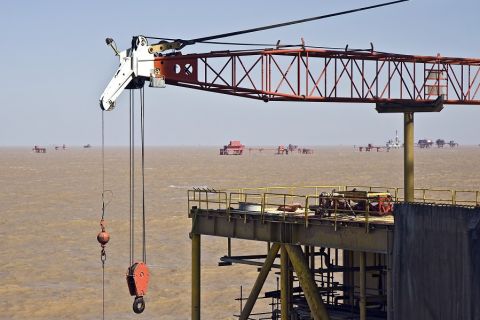The U.S. Treasury Department on May 27 renewed a license to oil producer Chevron Corp. to operate in U.S.-sanctioned Venezuela through the end of November under the same restricted terms granted to the company since 2020.
Chevron this year has doubled down on efforts to negotiate expanded privileges in its license, mainly to receive billions of dollars of pending debt by trading cargoes of Venezuelan oil. It also has sought unsuccessfully to gain some control of its joint ventures with Venezuelan state-run oil firm PDVSA.
The possibility of Venezuelan crude returning to the United States, once its largest single market, also had been discussed by U.S. officials at a high-level meeting in Caracas in March.
However, obstacles to resuming political talks between Venezuelan President Nicolas Maduro and opposition leader Juan Guaido, recognized by Washington as Venezuela’s rightful leader, ultimately limited expectations over the Chevron license reach this time.
U.S. officials want to see progress in negotiations between Maduro and the opposition before deciding on any expansion to the terms of Chevron’s license, a person in Washington familiar with the talks said.
Parties leading the political dialogue, set to restart in Mexico, have yet to set a date for the first meeting, which is expected to discuss free elections and the release of political prisoners among other issues.
Chevron did not have an immediate comment.
Looking for a Change
Last week, Chevron received a separate authorization from the Treasury to engage in talks with Maduro officials and with PDVSA through November, a move seen by analysts as a preliminary step to a possible broader license later this year.
The license issued on Friday only allows Chevron to conduct “transactions and activities necessary for safety or the preservation of assets in Venezuela,” including those for securing staff safety and operation integrity, participation in shareholder and board meetings, and payments on third-party invoices, local taxes, utility services and salaries.
The document also authorizes oilfield service companies Halliburton, Schlumberger, Baker Hughes and Weatherford International to maintain assets in Venezuela.
From 2019 through April 2020, Chevron had been permitted to trade Venezuelan oil to third parties, a privilege withdrawn by then U.S. President Donald Trump as part of a maximum pressure strategy to oust Maduro. The licenses issues since then have been limited the oil company's activities in Venezuela to preserving its assets.
European and Asian firms including Eni, Repsol and ONGC Videsh also are pressing Washington for authorizations to cash pending debt and dividends from their Venezuelan joint ventures.
Recommended Reading
E&P Highlights: Jan. 29, 2024
2024-01-29 - Here’s a roundup of the latest E&P headlines, including activity at the Ichthys Field offshore Australia and new contract awards.
Seadrill Awarded $97.5 Million in Drillship Contracts
2024-01-30 - Seadrill will also resume management services for its West Auriga drillship earlier than anticipated.
Oceaneering Won $200MM in Manufactured Products Contracts in Q4 2023
2024-02-05 - The revenues from Oceaneering International’s manufactured products contracts range in value from less than $10 million to greater than $100 million.
E&P Highlights: Feb. 5, 2024
2024-02-05 - Here’s a roundup of the latest E&P headlines, including an update on Enauta’s Atlanta Phase 1 project.
CNOOC’s Suizhong 36-1/Luda 5-2 Starts Production Offshore China
2024-02-05 - CNOOC plans 118 development wells in the shallow water project in the Bohai Sea — the largest secondary development and adjustment project offshore China.





